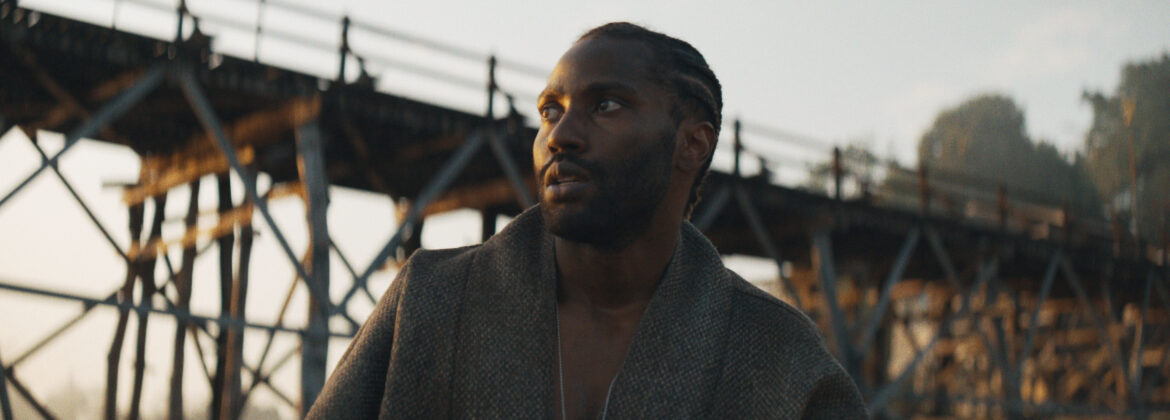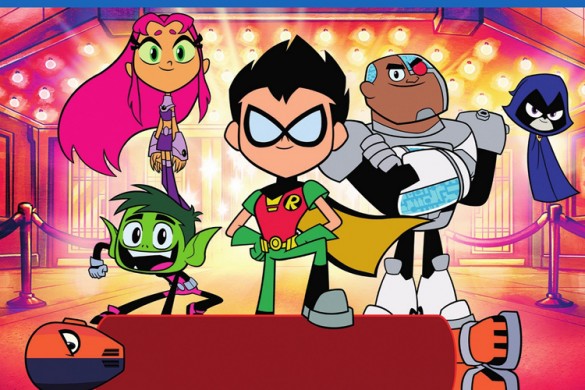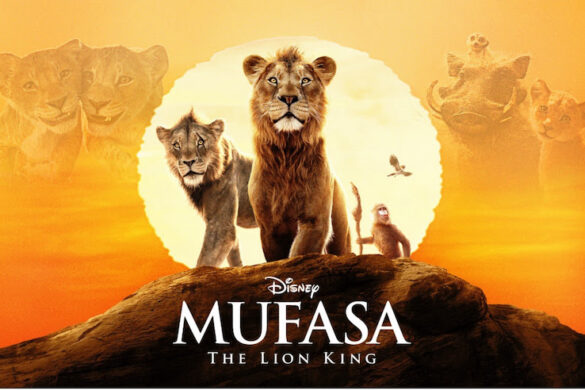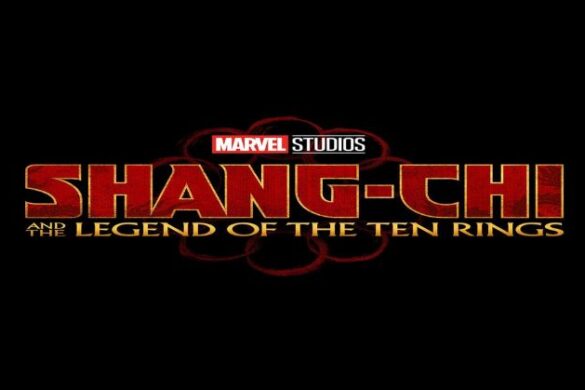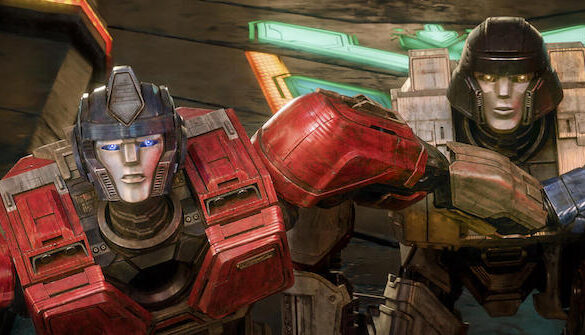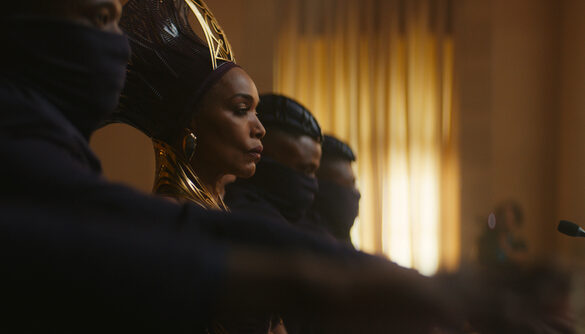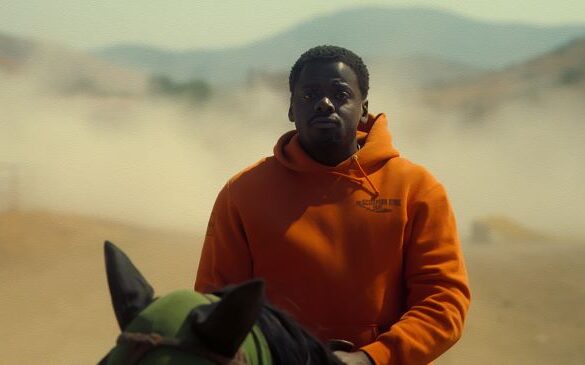In the past, movies about artificial intelligence and advanced technology interfacing in human lives seemed impossible. Often, they are depicted as an antagonist force meant to destroy humanity. Now, that cinematic fiction is slowly becoming our new reality. Gareth Edwards’ “The Creator” explores the nature of our relationship with A.I. while examining themes of love and empathy. Though a bit clunky, the film is a visual feast for the eyes that will stir up thought-provoking conversations about whether or not love can transcend the divide between what it means to be human and what it means to be alive.
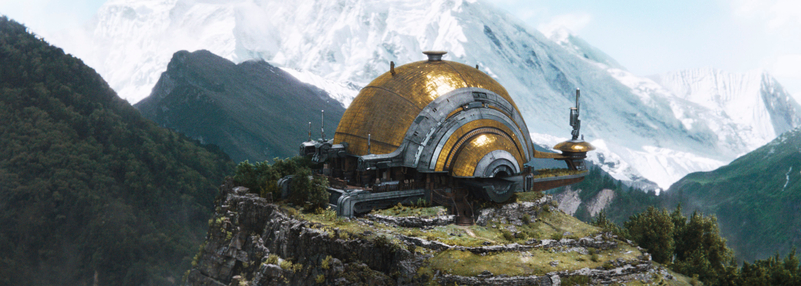
It’s 2070, and humanity has started to embrace integrating A.I. technology into their daily lives. Vintage commercials inform consumers about the benefits of introducing it into their daily lives. Clips of these synthetic copies help humans range from domestic work to medical and assembly line work. That harmony is interrupted after a nuclear tragedy in Los Angeles killed millions. Humans in the West put the blame on A.I., but the technology is still welcomed in New Asia, where they are considered a god. So, to counter A.I., the West has built a sizeable defensive space station called Nomad, which can target and hit robots with their missiles.
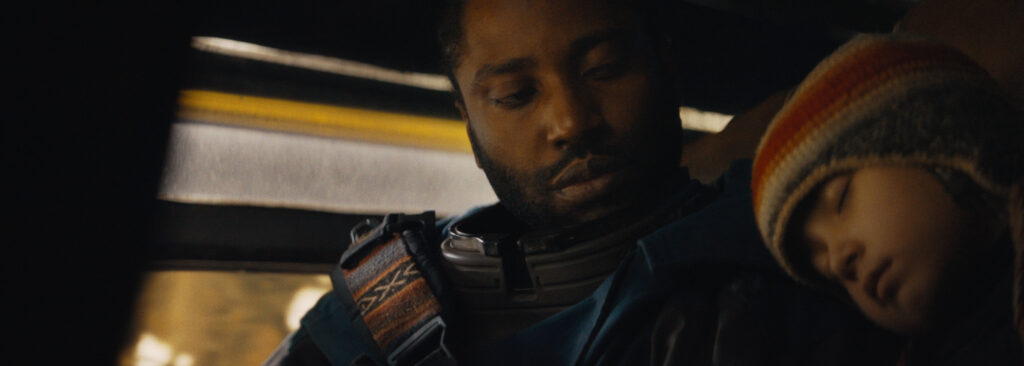
Joshua (John David Washington), a hardened soldier with cybernetic appendages, is sent to infiltrate and spy on a small group of disciples who follow Nirmātā – the Nepalese world for The Creator. The West believes that Nirmata is on the verge of creating a weapon that could tip the balance of the war in A.I.’s favor and possibly wipe out humanity. The one thing Joshua didn’t expect to do while on this mission was fall in love with Maya (Gemma Chan), an A.I. sympathizer who helps repair the robots. The two eventually marry and are expecting a child.
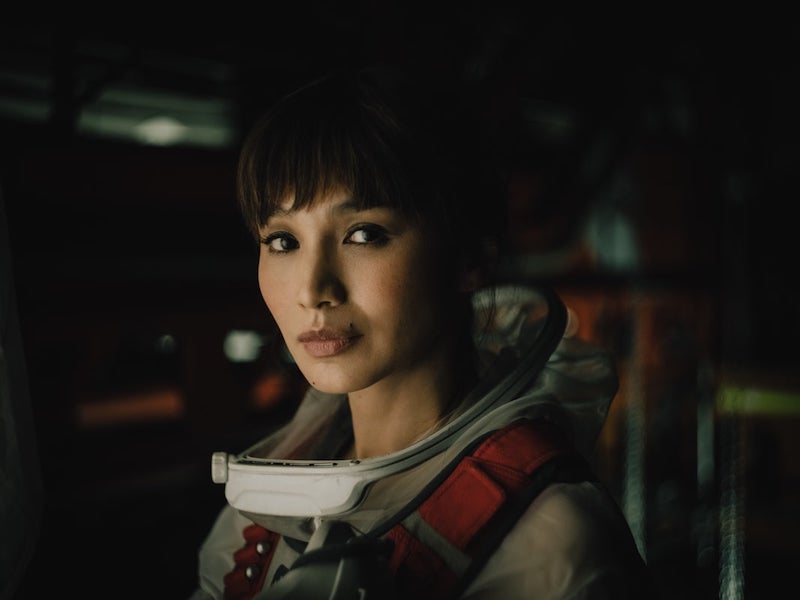
But on the night of a botched raid, Joshua accidentally reveals that he is a spy sent to apprehend Nirmata in front of Maya. As chaos ensues, Nomad targets one of Maya’s boats and launches an attack on it, effectively killing her, their child, and everyone aboard. Devastated, Joshua is now a hardened ex-special forces soldier called upon by the U.S. government to help the military locate Nirmata and destroy what they believe is a new weapon. He reluctantly accepts the mission as it might help him recover from the tragedy five years ago. However, Joshua discovers that the very thing he was sent out to destroy is an innocent child who may have a clue about Maya’s whereabouts.
So, Joshua takes the Synthoid, now named Aflie (Madeleine Yuna Voyles), along with him, not knowing that they are about to embark on a quest where the fate of humanity and A.I. rests in their success.
“The Creator” timely addresses a grave subject about humanity’s relationship to A.I. and asks what it truly means to be alive and if love can transcend that divide. The film is an intriguing exploration of that question using cinematic inspirations such as Lone Wolf and Cub, Apocalypse Now, Paper Moon, Rain Man, and Blade Runner to shape the beautiful scenic Southeast Asian landscapes, futuristic imagery, and story.
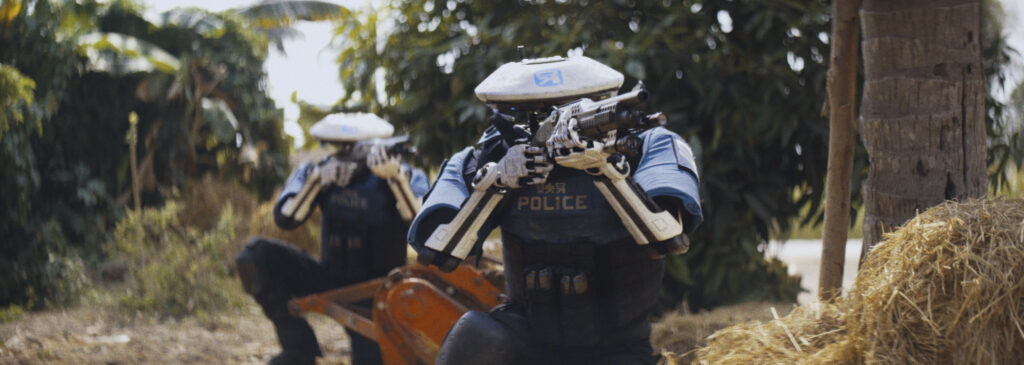
Broken into four chapters, the film mostly takes place from Joshua’s perspective, as he is our guide through his arduous journey across Southeast Asia. In “The Creator,” we get the necessary exposition to inform of the conflict between humans and A.I. and how the tragedy in the West shaped their prejudices towards A.I. Though they claim their war is not towards the people of New Asia, it is easy to see how the imperialistic natures spill over to humanity anyway. Though Westerners have a strong sense of individuality – Allison Janney’s Colonel Howell is a mother who lost her two military sons during a war against A.I. -. In contrast, New Asia and A.I. characters feel rather one-dimensional – Ken Watanabe’s Harun doesn’t do much but be a familiar face for Joshua. However, the people of New Asia aren’t made out to be monsters or an evil force that needs to be reckoned with. Instead, they are just villagers or people living out their lives with A.I. in peace, and it is the Westerners who come in, unwelcomed, destroying what they know and threatening them because of their embrace of technology.
It’s difficult to reconcile with how disturbing the imperialistic imagery is in “The Creator.” While it pulls from “Apocalypse Now” and is meant to be allegorical, watching Westernized nations imposing their beliefs on a nation just simply trying to live through violence. The film isn’t pro-A.I. or anti-A.I., but it finds a way to walk that fine line while exploring the darkness of human nature and warmongering. At the same time, it also has to tell Joshua’s story as a hardened, cynical soldier devastated by the loss of his missing wife and how this one child he was sent in to destroy is the guide to finding new meaning to what it means to be alive and what true love is. So, even though the war is a necessary conflict that helps formulate the story and Joshua’s arc much of the violence depicted is challenging to watch.
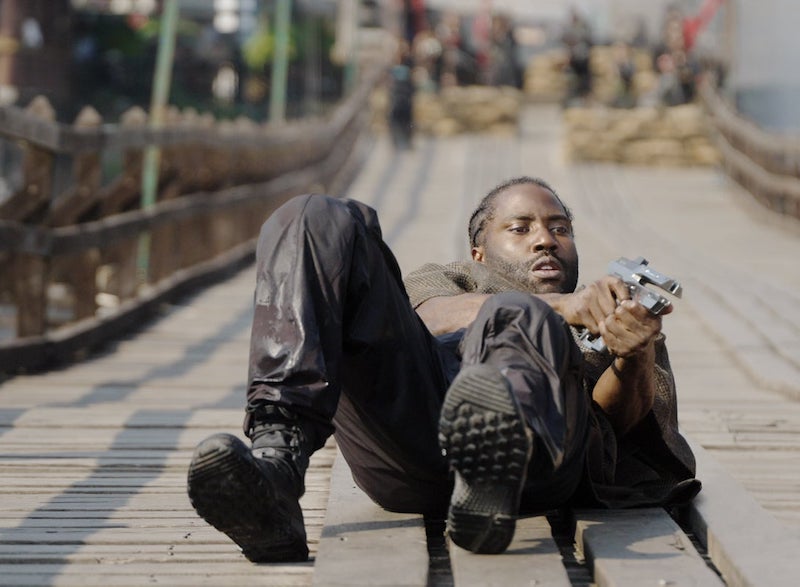
Like “Rogue One: A Star Wars Story” and “Godzilla (2014),” “The Creator” is a visual story with a conventional narrative that only works thanks in part to Washington and Voyle’s performances and chemistry. Edwards brings out the beauty in each of the Southeast Asian shots by focusing on its dichotomy and showing how its people can work with A.I. technology. The lack of green screen use and shooting on location in places like Thailand’s particle accelerator gives the film a real-world world, not-too-distant future feel. Almost as if it was “Blade Runner” and “Apocalypse Now” had been shot as one film. And to see that with a massive defense space station like Nomad hovering above to shoot down any enemies also has an emotional weight to it, as we see how A.I. runs in fear at the sight of its luminous targeting system. And it is proficient in each attack as being caught by the light only means instant death from one of its missiles. Edwards wisely restrained its destruction as it’s nothing like a Death Star. However, watching as innocent humans and A.I. could die if they are hit with that targeting light still feels devastating.
Some of the smaller and more intimate scenes feel tangible as well. None more so than the one where Joshua and Alfie hide away in a Nepalese encampment, and its villagers are staging a defense against the Westerners who have unleashed self-destructive robots on one of their bridges. We see how A.I. and the villagers live in his idyllic world away from the masses or mega-city life, only to have that protection stripped away because the West wants to destroy Alfie. As such, they don’t have the same sophisticated weaponry as their hostile oppressors, making the audience sympathize with New Asia and A.I.’s defensive stance.
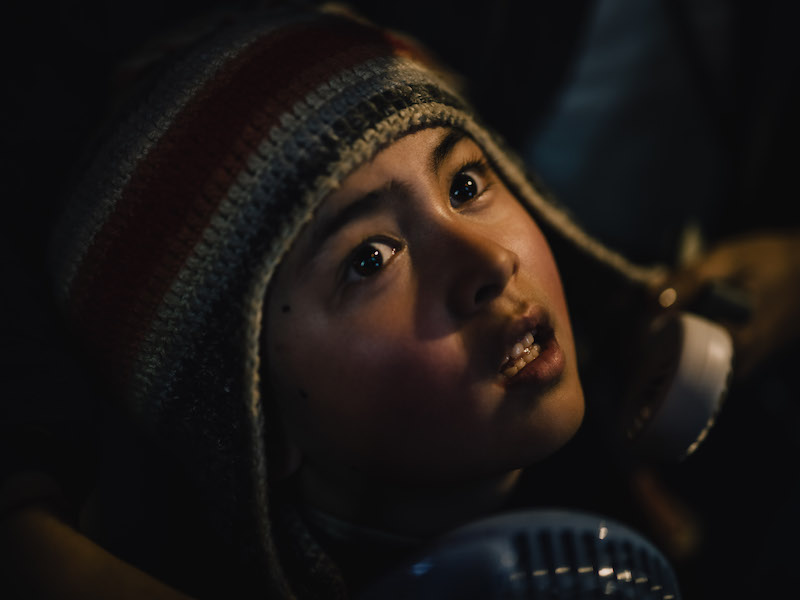
While the film touts outstanding visual effects, there’s also something spiritual about “The Creator.” The people of New Asia see A.I. as a messiah with more heart and humanity than Western soldiers – one soldier threatens to shoot a dog in front of a child and their mother. They even refer to the all-powerful A.I. creator as Nirmata – the Nepalese word for The Creator. Joshua begins to see A.I. in a new light when Alfie displays the ability to activate or put technology on standby simply by putting her hands together as if she were praying. Furthermore, Aflie questions what heaven is and how one gets there. Of course, Joshua provides an honest answer, but in a way a child can understand. In a surprising response, Alfie displays a sense of awareness that shows she understands who she is.
“The Creator” is visually striking across the board, using clever camera angles and lenses to capture the character’s emotions and the beautiful grandeur of each location. Though the film is somewhat tonally inconsistent, it will strike up conversations about humanity’s relationship with A.I., what it means to be human, what it means to be alive, and if love can transcend that divide. While some of those questions may be answered in Joshua’s journey and arc, others will be left up for us to figure out.
7.5/10

